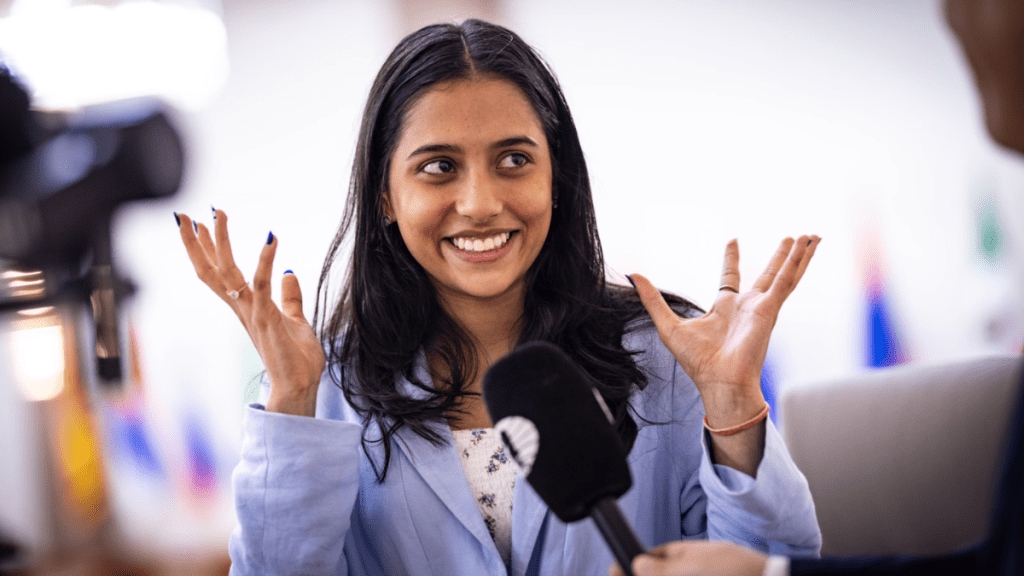When Divya Deshmukh registered a thumping win at the FIDE Women’s World Cup 2025, many saw it as the arrival of a new sports icon in India’s brand endorsement firmament. At just 19, she was the first Indian woman to win the prestigious tournament, writing a fresh chapter not just for the game of chess but for a new generation of athletes and sport persons trying to eke out a share in a cricket-dominated business.
Many others worried if that was just a blip.
Look at the Top 10 most visible celebrities of the year 2024 as per TAM AdEx’s latest report. It has six male and only four female stars — Sara Ali Khan, Kiara Advani, Alia Bhatt and Anushka Sharma — all from the world of Bollywood. The only sporting personality on the list is MS Dhoni at the number four spot, after Akshay Kumar, Shah Rukh Khan and Amitabh Bachchan.
Now look at the market waiting to be tapped. India’s massive sports market, with 655 million sports fans, is growing fast. The size of the sports endorsement market experienced significant growth, with athlete endorsements alone reaching Rs 1,224 crore in 2024, a 32% year-on-year increase from Rs 927 crore in 2023. Overall, the Indian sports sponsorship industry grew by 6% in 2024 to a total of Rs 16,633 crore, as reported by GroupM ESP.
Simply put, the sheer size of the sports market presents a huge opportunity for brands to tap into the potential and win new customers.
But can Deshmukh upset the apple cart? Will her affable charm help her break into a cricketing-celebrity-dominated field?
The challenge is immense. Apart from cricketer Harmanpreet Kaur and Smriti Mandhana and Olympian Manu Bhaker, besides established stars like Sania Mirza and PV Sindhu, there are few women athletes who have been able to crack big-ticket endorsement deals. “Women sports personalities score low on mass recognition and therefore recall,” says a brand consultant. “That explains the fewer endorsements and lower fees (compared to male athletes).”
On the upside, brands aren’t just looking for mass reach anymore, they’re chasing stories that resonate, that create conversations, says Shubham Chawla, business head, Youthbeat (SW Network). ” Women athletes and creators outside the cricket domain are finally getting the recognition they deserve, that shift happened a while ago, with the likes of PV Sindhu, Saniya Mirza and others. Audiences want real role models, and Divya is a great example of that shift happening to a greater effect. She shows that you don’t need to be loud to be powerful, you just need to be real.”
Upsetting the apple cart
There is a certain perception about chess players — they are supposed to be brooding and emotionless. But Divya Deshmukh breaks that stereotype. She smiles easily, speaks with clarity and confidence, and her playful moments—like apologising to a chess clock or wooden pieces after knocking them over—have endeared her to a generation that values authenticity over performance. It is no surprise that marketers are seeing her not just as a Grandmaster but as a genuine opportunity in the persuasion economy.
“Deshmukh brings a rare mix of intellect, discipline, and quiet confidence that sets her apart in the endorsement space,” says Ambika Sharma, founder & chief strategist, Pulp Strategy. “She represents a new generation of Indian achievers who are globally competitive and deeply rooted,” Sharma says her appeal lies in her credibility and her calm edge. She is aspirational without being flashy, and that opens up a very different kind of brand conversation. Veteran film critic Komal Nahta says, “Divya Deshmukh’s World Cup victory has positioned her as a highly marketable athlete, particularly valuable for brands eager to resonate with Gen Z consumers.”
Says Yasin Hamidani, director, Media Care Brand Solutions, “Brands in categories like edtech, personal care, youth fashion, mental wellness, digital finance, and even smart wearables would find a strong, credible fit in partnering with her. She’s aspirational, relatable, and still carving her niche—making her a valuable brand ambassador for long-term storytelling.”
Until now, her endorsements were limited to smaller, often regional campaigns. Experts say that will change dramatically. Marketing executives peg her current brand value at around ₹25-40 lakh per deal—a conservative estimate that could rise quickly if her media and public presence is shaped smartly. Her profile is still being written, which gives brands an unusual advantage: the ability to help shape and define her narrative from the ground up. That’s a rare asset in the world of celebrity endorsements, where most personalities come preloaded with years of media baggage.
Interestingly, Deshmukh’s rise also coincides with a broader transformation within Indian chess. The sport, once niche, has now burst into the digital spotlight. Platforms like Chess.com have made it livestream-friendly, snackable, and highly engaging, particularly among younger audiences. India alone accounts for over 9 million monthly active users on the platform, and chess tournaments now routinely clock strong viewership, especially during high-stakes matches. In this landscape, personalities matter as much as performance—and Deshmukh, with her youth, humour, and clarity, is ideally positioned to thrive.
She’s not alone, of course. Indian Grandmasters like D Gukesh, R Praggnanandhaa, and Arjun Erigaisi have already ushered in a new commercial era for the sport. Erigaisi signed a million-dollar sponsorship, and others have landed long-term brand partnerships. Institutional support is growing too—the Pravaha Foundation recently pledged Rs 2 crore to support six women chess players. The chess economy is expanding, and Divya’s victory places her firmly at the heart of it.
